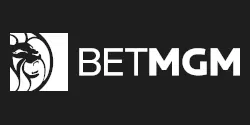Pennsylvania Sports Betting
Pennsylvania sports betting is legal and regulated, with over a dozen online betting apps currently operational. An even greater number of retail sportsbooks at casinos and race tracks have also opened throughout the Keystone State.
Despite a contentious tax rate and a hard cap on the number of sports betting apps allowed, Pennsylvania has grown into one of the most prosperous online sports betting markets in the U.S., rivaling neighboring New Jersey.
Pennsylvania sports betting law permits customers 21 or older to bet online from anywhere within state lines via licensed online sportsbooks and mobile betting apps.
Bettors may also visit retail sportsbooks at licensed casinos, race tracks, and off-track betting facilities (OTBs) to place wagers in person.
Legal Pennsylvania Betting Sites
 Bet $5 Get $200 If It WinsFanDuel Promo Code: Not Needed
Gambling Problem? Call 1-800-GAMBLER or visit RG-Help.com. Call 1-888-789-7777 or visit ccpg.org/chat (CT). Hope is here. GamblingHelpLineMA.org or call (800) 327-5050 for 24/7 support (MA). Visit www.mdgamblinghelp.org (MD). Call 1-877-8HOPE-NY or text HOPENY (467369) (NY). 21+ (18+ D.C., KY, WY) and present in select states (for KS, in affiliation with KS Star Casino). First online real money wager only. $5 first deposit required. Bonus issued as nonwithdrawable bonus bets which expire 7 days after receipt. Restrictions apply. See terms at sportsbook.fanduel.com.
Bet $5 Get $200 If It WinsFanDuel Promo Code: Not Needed
Gambling Problem? Call 1-800-GAMBLER or visit RG-Help.com. Call 1-888-789-7777 or visit ccpg.org/chat (CT). Hope is here. GamblingHelpLineMA.org or call (800) 327-5050 for 24/7 support (MA). Visit www.mdgamblinghelp.org (MD). Call 1-877-8HOPE-NY or text HOPENY (467369) (NY). 21+ (18+ D.C., KY, WY) and present in select states (for KS, in affiliation with KS Star Casino). First online real money wager only. $5 first deposit required. Bonus issued as nonwithdrawable bonus bets which expire 7 days after receipt. Restrictions apply. See terms at sportsbook.fanduel.com.
 $1500 In Bonus BetsBetMGM Bonus Code: BUSABONUS
Gambling problem? Call 1-800-GAMBLER (available in the US). Call 877-8-HOPENY or text HOPENY (467369) (NY). Call 1-800-327-5050 (MA). 21+ only. Please gamble responsibly. Call 1-800-NEXT-STEP (AZ), 1-800-BETS-OFF (IA), 1-800- 981-0023 (PR). First bet offer for new customers only. Subject to eligibility requirements. Bonus bets are non-withdrawable. In partnership with Kansas Crossing Casino and Hotel. See BetMGM.com for terms. US $1500 promotional offer not available in New York, Nevada, Ontario, or Puerto Rico.
$1500 In Bonus BetsBetMGM Bonus Code: BUSABONUS
Gambling problem? Call 1-800-GAMBLER (available in the US). Call 877-8-HOPENY or text HOPENY (467369) (NY). Call 1-800-327-5050 (MA). 21+ only. Please gamble responsibly. Call 1-800-NEXT-STEP (AZ), 1-800-BETS-OFF (IA), 1-800- 981-0023 (PR). First bet offer for new customers only. Subject to eligibility requirements. Bonus bets are non-withdrawable. In partnership with Kansas Crossing Casino and Hotel. See BetMGM.com for terms. US $1500 promotional offer not available in New York, Nevada, Ontario, or Puerto Rico.
 $200 in No-Sweat Bets for 10 DaysFanatics Sportsbook Promo Code: Not Needed
Must be 21+. GAMBLING PROBLEM? CALL 1-800-GAMBLER or 1-800-522-4700, www.mdgamblinghelp.org (MD), (800)-327-5050 or gamblinghelplinema.org (MA), CALL (877) 8-HOPENY or TEXT HOPENY (467369) (NY), or CALL 1-800-NEXT-STEP or TEXT NEXTSTEP to 53342 (AZ), (888) 789-7777 or ccpg.org (CT), or 1-800-9-WITH-IT (IN), morethanagame.nc.gov (NC). New customers in AZ, CO, CT, DC, IA, IL, IN, KS, KY, LA, MD, MI, MO, NC, NJ, OH, PA, TN, VA, VT, WV, or WY (excludes NY). Apply promotion in bet slip and place a $1+ cash wager (min odds -500) daily for 10 consecutive days starting day of account creation. Wager must settle as a loss to earn FanCash equal to losing amount (max $200 FanCash/day). FanCash issued under this promotion expires at 11:59 PM ET 7 days from issuance. Terms, incl. FanCash terms, apply – see Fanatics Sportsbook app.
$200 in No-Sweat Bets for 10 DaysFanatics Sportsbook Promo Code: Not Needed
Must be 21+. GAMBLING PROBLEM? CALL 1-800-GAMBLER or 1-800-522-4700, www.mdgamblinghelp.org (MD), (800)-327-5050 or gamblinghelplinema.org (MA), CALL (877) 8-HOPENY or TEXT HOPENY (467369) (NY), or CALL 1-800-NEXT-STEP or TEXT NEXTSTEP to 53342 (AZ), (888) 789-7777 or ccpg.org (CT), or 1-800-9-WITH-IT (IN), morethanagame.nc.gov (NC). New customers in AZ, CO, CT, DC, IA, IL, IN, KS, KY, LA, MD, MI, MO, NC, NJ, OH, PA, TN, VA, VT, WV, or WY (excludes NY). Apply promotion in bet slip and place a $1+ cash wager (min odds -500) daily for 10 consecutive days starting day of account creation. Wager must settle as a loss to earn FanCash equal to losing amount (max $200 FanCash/day). FanCash issued under this promotion expires at 11:59 PM ET 7 days from issuance. Terms, incl. FanCash terms, apply – see Fanatics Sportsbook app.
 Bet $5 Get $200 Win Or LoseBet365 Bonus Code: BETUSAGAMBLING PROBLEM? CALL OR TEXT 1-800-GAMBLER (AZ, CO, IL, IN, KS, KY, LA, MD, MO, NC, NJ, OH, PA, TN, VA) or 1-800-BETS OFF (IA). 21+ (18+ KY). Must be present in AZ/CO/IA/IL/IN/KS/KY/LA (select parishes)/MD/MO/NC/NJ/OH/PA/TN/VA. Minimum $10 deposit required. Minimum odds -500 or greater. Bonus Bets wager excluded from returns. New customers only. T&Cs, time limits and exclusions apply.
Bet $5 Get $200 Win Or LoseBet365 Bonus Code: BETUSAGAMBLING PROBLEM? CALL OR TEXT 1-800-GAMBLER (AZ, CO, IL, IN, KS, KY, LA, MD, MO, NC, NJ, OH, PA, TN, VA) or 1-800-BETS OFF (IA). 21+ (18+ KY). Must be present in AZ/CO/IA/IL/IN/KS/KY/LA (select parishes)/MD/MO/NC/NJ/OH/PA/TN/VA. Minimum $10 deposit required. Minimum odds -500 or greater. Bonus Bets wager excluded from returns. New customers only. T&Cs, time limits and exclusions apply.21+ and present in PA. T&Cs Apply. Gambling Problem? Call 1-800-GAMBLER.
Pennsylvania Online Sports Betting Apps
The first Pennsylvania sports betting apps launched in May 2019, and more have opened since.
Early on, there was speculation that the $10 million licensing fee and 36% tax rate would dissuade operators from entering the Pennsylvania sports betting market.
However, most casinos have applied for licenses, and bettors now have access to a variety of online sports betting sites in Pennsylvania.
Below is a list of all sports betting apps available in Pennsylvania:
- BetMGM Sportsbook
- FanDuel Sportsbook
- Caesars Sportsbook
- Bet365 Sportsbook
- BetRivers Sportsbook
- DraftKings Sportsbook
- BetParx
Bettors can also verify the licensing status of all Pennsylvania online sportsbooks at the PGCB website.
Pennsylvania Sports Betting Bonuses
Pennsylvania sports betting bonuses offer incentives for new customers to sign up for accounts and make deposits.
Some welcome promotions allow customers to place their first bet and receive a refund if it loses. Others issue wagering credits to customers who make their first deposit. Yet another type offers new customers a bonus bet or “second chance bet” match equal to the size of their first wager.
In short, the PA online sports betting market is rife with high-value bonuses, promotions, and special offers.
In all cases, the general idea is to give new customers a good reason to sign up and bet online for real money.
Pennsylvania Regulations On Betting Promotions
58 PA Code § 1409.1 requires operators to comply with the same rules that govern online casinos regarding bonuses, promotions, and advertisements.
Among other requirements, licensed PA betting apps must maintain records of all promotions so the Gaming Control Board can audit them for “compliance with the terms and conditions of current and previous offers.”
As a result, Pennsylvania sports betting bonuses tend to be simple and easy to understand. The rules do not guarantee every promotion is a great deal, but does ensure fairness.
One of the nice things about legal online sports betting PA residents should remember is that operators that launch misleading promotions risk losing their licenses.
PA regulations also require the terms and conditions associated with promotions to clearly describe what the promotion offers, who is eligible to participate, what actions customers must complete to participate, and any restrictions on the withdrawal of funds.
Pennsylvania Sports Betting Locations
Pennsylvania law permits casinos and race tracks to operate retail sportsbooks. Licensed race tracks may also construct sportsbooks at licensed off-track betting locations (OTBs).
Philadelphia Sportsbooks
- Caesars Sportsbook at Harrah’s Philly
- South Philadelphia Race & Sportsbook
- BetRivers Sportsbook at Rivers Casino Philadelphia
- FanDuel Sportsbook at Live! Casino Philadelphia
Pittsburgh Sportsbooks
- BetRivers Sportsbook at Rivers Casino Pittsburgh
- FanDuel Sportsbook at Live! Casino Pittsburgh
Other Retail Sportsbooks in Pennsylvania
- Mohegan Pennsylvania Sportsbook at Wilkes-Barre
- Mohegan Pennsylvania Sportsbook at Lehigh Valley
- BetParx Sportsbook at Parx Casino Bensalem
- The Sportsbook at Mount Airy Casino
- The Sportsbook at Hollywood Casino York
- The Sportsbook at Hollywood Casino Penn National
- The Sportsbook at Hollywood Casino The Meadows
- The Sportsbook at Hollywood Casino Morgantown
- Twinspires Sportsbook at Presque Isle Downs
- FanDuel Sportsbook at Valley Forge Casino Resort
- Sportsbook at Wind Creek Bethlehem
Pennsylvania Sports Betting Law
Pennsylvania began legalizing sports betting in 2017 with the passage of a large gaming expansion bill titled HB 271.
The bill, signed into law as 2017 Act 42, greatly expanded Pennsylvania’s legal gambling options. Act 42 authorizes retail sportsbooks, mobile sports betting, daily fantasy sports, online gambling, online lottery games, and expands other in-person gambling options.
Sports betting provisions included in the bill were written to become effective contingent upon a change in federal law permitting states to regulate sports betting.
After the Supreme Court struck down the Professional and Amateur Sports Protection Act (PASPA) as unconstitutional in May 2018, the portion of Pennsylvania’s new gambling law related to sports betting took effect.
The first Pennsylvania sportsbooks opened near the end of 2018, and the first mobile betting apps launched in mid-2019.
Key things to know about Pennsylvania online sports betting laws:
- Minimum age of 21 to participate.
- Persons excluded from gaming in Pennsylvania cannot participate.
- Key sports league personnel cannot wager on their own leagues.
- Licensed casinos, race tracks, and off-track betting locations (OTBs) may operate retail sportsbooks on-premises
- Licensed casinos and race tracks may each operate one online and mobile sports betting platform
- PA sportsbooks may accept wagers on professional and college sports
- Esports betting and wagers on non-sports events are not allowed
- The Pennsylvania Gaming Control Board (PGCB) regulates sports betting
Pennsylvania Daily Fantasy Sports
The 2017 gambling expansion law that legalized sports betting in Pennsylvania also granted the Gaming Control Board regulatory powers over daily fantasy sports.
Under the updated law, Pennsylvania daily fantasy sports sites must register with the state and comply with regulations designed to protect consumers and ensure fair games.
Fantasy sports players can learn about DFS in Pennsylvania and find a list of BettingUSA’s recommended operators:
Pennsylvania Horse Racing Betting
Pennsylvania boasts a healthy horse racing industry that provides numerous options to watch and bet on races.
Six major racetrack casinos and off-track betting facilities (OTBs) provide ample opportunity to bet on horse races in person, while licensed advance deposit wagering providers (ADWs) allow customers to bet online from anywhere in the commonwealth.
The State Horse Racing Commission oversees all horse racing and parimutuel betting in Pennsylvania, and it does commendable work in ensuring the integrity of the sport.
BettingUSA maintains a detailed guide to Pennsylvania horse racing betting, with a complete list of race tracks and online racebooks and an introduction to parimutuel wagering law:
Pennsylvania Online Gambling
 $25 On Signup + $1000 Deposit BonusBetMGM Casino Bonus Code: BUSABONUS
GAMBLING PROBLEM? Call 1-800-GAMBLER (NJ, PA, WV) or call 1-800-270-7117 (MI) for confidential help. Must be 21+. MI, NJ, PA, and WV only. Please gamble responsibly. Visit BetMGM.com for terms and conditions. All promotions are subject to qualification and eligibility requirements. Rewards issued as non-withdrawable site credit unless otherwise provided in the applicable terms. Rewards subject to expiry.
$25 On Signup + $1000 Deposit BonusBetMGM Casino Bonus Code: BUSABONUS
GAMBLING PROBLEM? Call 1-800-GAMBLER (NJ, PA, WV) or call 1-800-270-7117 (MI) for confidential help. Must be 21+. MI, NJ, PA, and WV only. Please gamble responsibly. Visit BetMGM.com for terms and conditions. All promotions are subject to qualification and eligibility requirements. Rewards issued as non-withdrawable site credit unless otherwise provided in the applicable terms. Rewards subject to expiry.
Legal online gambling options in Pennsylvania include online casinos, poker sites, and online lottery games.
Pennsylvania online casinos and poker sites accept players 21 or older and are regulated by the PA Gaming Control Board (PGCB).
State law directs the PGCB to regulate online gambling in Pennsylvania, issue licenses to qualifying operators, and adopt additional regulations as needed to execute the law.
The Pennsylvania online lottery (PA iLottery) functions a bit differently because it operates under the Department of Revenue rather than the PGCB and accepts customers 18 or older.
Pennsylvania Online Casinos
 $25 On Signup + $1000 Deposit BonusBetMGM Casino Bonus Code: BUSABONUS
GAMBLING PROBLEM? Call 1-800-GAMBLER (NJ, PA, WV) or call 1-800-270-7117 (MI) for confidential help. Must be 21+. MI, NJ, PA, and WV only. Please gamble responsibly. Visit BetMGM.com for terms and conditions. All promotions are subject to qualification and eligibility requirements. Rewards issued as non-withdrawable site credit unless otherwise provided in the applicable terms. Rewards subject to expiry.
$25 On Signup + $1000 Deposit BonusBetMGM Casino Bonus Code: BUSABONUS
GAMBLING PROBLEM? Call 1-800-GAMBLER (NJ, PA, WV) or call 1-800-270-7117 (MI) for confidential help. Must be 21+. MI, NJ, PA, and WV only. Please gamble responsibly. Visit BetMGM.com for terms and conditions. All promotions are subject to qualification and eligibility requirements. Rewards issued as non-withdrawable site credit unless otherwise provided in the applicable terms. Rewards subject to expiry.
The first PA online casinos launched in July 2019, and more than a dozen have opened since.
Most Pennsylvania casinos partner with third-party operators like BetMGM Casino to offer online casino games, poker, or both. However, the best Pennsylvania casino sites offer a little bit of everything, and those are generally BettingUSA’s top recommendations for players.
Readers can follow the next link for more information and a complete list of legal online casinos in Pennsylvania:
Pennsylvania Online Poker
 $1000 Deposit BonusBetMGM Poker Bonus Code: BUSABONUS
Visit BetMGM.com for terms and conditions. Must 21+ in MI, NJ, PA, 19+ in Ontario. MI, NJ, PA, and Ontario only. All promotions are subject to qualification and eligibility requirements. Rewards issued as non-withdrawable site credit and/or tournament entries. Rewards subject to expiry. Please play responsibly. Gambling problem? Call 1-800-270-7117 for confidential help (MI), call 1-800-GAMBLER (NJ, PA). If you have questions or concerns about your gambling or someone close to you, please contact ConnexOntario at 1-866-531-2600 to speak to an advisor, free of charge.
$1000 Deposit BonusBetMGM Poker Bonus Code: BUSABONUS
Visit BetMGM.com for terms and conditions. Must 21+ in MI, NJ, PA, 19+ in Ontario. MI, NJ, PA, and Ontario only. All promotions are subject to qualification and eligibility requirements. Rewards issued as non-withdrawable site credit and/or tournament entries. Rewards subject to expiry. Please play responsibly. Gambling problem? Call 1-800-270-7117 for confidential help (MI), call 1-800-GAMBLER (NJ, PA). If you have questions or concerns about your gambling or someone close to you, please contact ConnexOntario at 1-866-531-2600 to speak to an advisor, free of charge.
Legal online poker came to Pennsylvania in 2019 with the launch of PokerStars PA in partnership with Mount Airy Casino Resort. Several additional online poker sites launched in 2021, bringing some competition to the PA online poker market.
Currently, the following operators hold Pennsylvania online poker licenses:
With a population of nearly 13 million, Pennsylvania is the largest state to legalize online poker to date.
Pennsylvania Online Lottery
Pennsylvania’s 2017 gambling expansion bill also included reforms for the state lottery. Most notably, the law granted the Pennsylvania Lottery permission to offer most of its games online.
Some of the authorized Pennsylvania online lottery games include tickets to draw games, instant win scratch card games, and keno.
Not long after the PA legislature sent that bill to Governor Wolf, he announced that he would be authorizing the Pennsylvania Lottery to operate virtual sports betting terminals in authorized locations such as bars and taverns.
The state lottery predicted that the change would result in up to $75 million in additional revenue over the next five years.
The Pennsylvania Lottery launched PAiLottery in June 2018 with a small selection of games that has grown significantly since.
Lottery players 18 or older and located in Pennsylvania can visit PAiLottery.com to download the Pennsylvania lottery app, buy tickets online, and play dozens of instant win games that boast top prizes worth up to several million dollars.
Pennsylvania Online Gambling Laws
Pennsylvania Governor Tom Wolf legalized online gambling in Pennsylvania after signing HB 271 in 2017.
Under the law, land-based casinos and race tracks may launch up to two online gambling platforms, one each for casino-style games and poker.
All Pennsylvania casinos may apply for one or more of the following licenses to offer online gambling:
- Non-peer-to-peer games that simulate slot machines (online slots)
- Non-peer-to-peer games that simulate table games (online table games)
- Peer-to-peer interactive table games (online poker)
Operators may apply for Pennsylvania online gambling licenses at a cost of $4 million. Pennsylvania casinos also received the option to purchase all three licenses in a package deal for $10 million during the first 90-day period after the law was passed.
Additionally, other “qualified gaming entities” (QGEs) may apply for any licenses not already claimed by a local casino.
Online gambling tax rates are relatively high in Pennsylvania, with online slots taxed at 52% plus an additional 2% local tax. Table games and poker are taxed at 14% + 2% and sports betting at 34% + 2%.
Past Efforts To Legalize Online Gambling In Pennsylvania
Responsible Gambling In Pennsylvania
Gamblers with questions, concerns, or in immediate need of assistance have access to a variety of responsible gambling resources, tools, and helplines in Pennsylvania:
- 24/7 Pennsylvania Gambling Helpline: Call 1-800-GAMBLER; Text 1-800-522-4700; or chat live
- Council on Compulsive Gambling of Pennsylvania: Nonprofit organization that provides information, helplines, and other resources for problem gamblers and their loved ones
- Gambling Provider Locations: Visit this website for a list gambling addiction treatment providers endorsed by the Pennsylvania Department of Drug and and Alcohol
- National Council on Problem Gambling: Additional problem gambling resources curated by the NCPG
- Gamblers Anonymous: Find Gamblers Anonymous meetings throughout Pennsylvania
- Gam-Anon Pennsylvania: Find support meetings for people affected by a loved one with a gambling problem
Pennsylvania Sports Betting And Gambling Self-Exclusion
The PGCB offers several self-exclusion programs for the following types of gambling:
- Online sports betting and gambling
- Daily fantasy sports sites
- Casinos and satellite casinos
- Video gaming terminals
Pennsylvania gamblers and sports bettors can register for any or all of the above programs online at the PGCB self-exclusion website for a minimum of one year, five years, or a lifetime.
To begin, visit this page to sign up for an account with the Pennsylvania self-exclusion program. After registering, select the type of gambling from which you would like to self-exclude and follow the onscreen instructions to complete the enrollment process.
See these instructions for a step-by-step guide to self-excluding from any form of gambling or sports betting in Pennsylvania.
Anyone who has trouble enrolling in any Pennsylvania gambling exclusion program can contact the Office of Compulsive and Problem Gambling at 717-346-8300 or e-mail the office at problemgambling@pa.gov to schedule a call with an employee who can assist with submitting an enrollment request.
Important Pennsylvania self-exclusion points:
- Online sports betting, iGaming, video gaming terminals, and daily fantasy self-exclusion requests automatically expire at the end of the selected term
- Casino self-exclusion requests do not automatically expire; players remain excluded permanently but may apply for removal from the program upon completing the selected exclusion term
- Casino operators may elect to restrict anyone who self-excludes from all properties they own nationwide
- When you self-exclude from sports wagering, some operators may extend that restriction to all forms of gambling associated with their brand
- The Pennsylvania Lottery operates a separate self-exclusion program for its online lottery products; readers can learn more here





